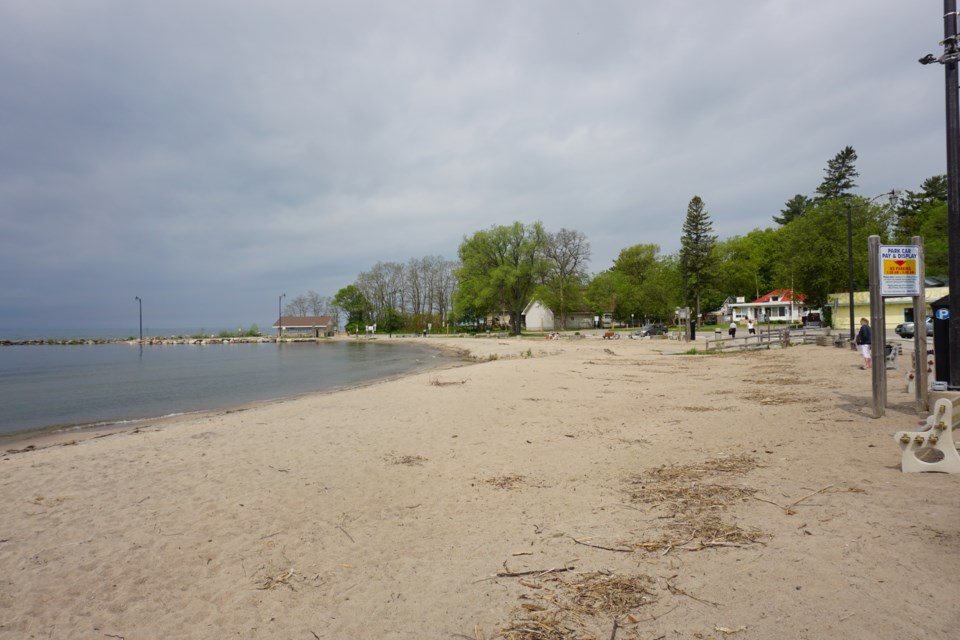A new group wants to return Tiny Township’s beaches to the way they used to be.
Called Beach Rights, the group now has close to 4,000 members on Facebook since recently starting and plans to lobby township councillors to ensure residents have better access to the municipality’s kilometres of sandy beaches.
“I think people deserve to know the truth,” said group co-founder Rob Johnston.
“Our group is very simple. We want to grow our numbers so that we can get the attention of council to look at the issues of beach access for us. That's all we're trying to do.”
Johnston said that waterfront residents only make up five percent of the population, but seem to have extraordinary sway with council.
“They have for too long influenced the elections and had way too much say,” he said. “We have an election coming up in 15 months. And I make no bones about it, represent all of us fairly. By far, the vast majority of people are not beachfront owners so that's why we are growing so quickly.”
As a long-time backlot owner, Johnston said those living along the water are overstepping how much power they actually have by arbitrarily deciding who can walk along and swim at local beaches.
For his part, Johnston successfully went to court in 2017 to have a trespassing charge tossed out against him after police were called to one such beach by a homeowner, who was upset he was using the beach.
“I've lost count how many times they've called the police on me,” Johnston said, noting that at one time, residents even hired security guards to patrol the stretch of sand known as Ardmore Beach.
“Now, the security guards are gone, the police no longer kick people off the beach, and we all use it freely. It's been a battle. I don't get any Christmas cards from them (beachfront owners) and I don't think I ever will.”
Johnston said that “truth” and “the facts” are on the side of those who want to visit local beaches.
Johnston said that while beachfront residents have come together as groups and associations for years to lobby for things they’d like to see happen, his group will use its collective voice to try to evoke change.
“Our numbers are growing like crazy,” he said, adding the growing membership shows that others are also looking for a change from the status quo.
“We feel that we've not been represented properly and fairly in Tiny Township for years. And it goes back beyond this council. We have a sole purpose to effect change through our elected officials. The OPP has said to me, ‘your elected officials are the ones that have to solve this.’”
Johnston said some beachfront owners use bullying and intimidation to keep locals off the beaches while also placing obstructions in the water or along the shoreline.
As an example, he cites a recent phone call he had from a woman who was harassed at the beach while trying to enjoy it with her three grandchildren. She wanted to know “why she was being kicked off after using those beaches for nearly 60 years.”
And even for those claiming to own to the water’s edge, Johnston said others still rightly maintain deeded access to the beach.
“There are traditional uses, there's historical usage, you can't deny those things. And then you’ve got native rights, which is a whole different issue.”
And when police are called, Johnston said they are often given a skewed account of events and the facts that led to the beachfront owner calling them in the first place.
“You know an officer gets called at 12 noon to go down to a beach dispute. It's 35 degrees, and he's gonna walk down there and people are arguing. Then somebody says, ‘I own that land.’ And he's (the officer) not a lawyer. He's not a surveyor. He's not trained to look at deeds and stuff.
“They've made false police reports constantly about owning the land, which they don't. They’ve never owned it.”
And the move to electronic voting in next year’s municipal election should also help get their message across, according to Johnston.
“It's going to be a lot easier this time for people to get involved. Because remember when it (the election) happens, it happens when the majority of people who are cottagers are gone. And they’re less than five percent of the population.
“They’ve been the squeaky wheel that gets the oil. Well, we're squeaking now, and we're gonna squeak loudly.”
